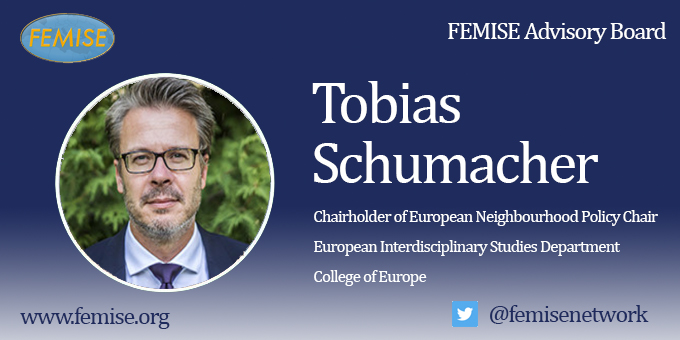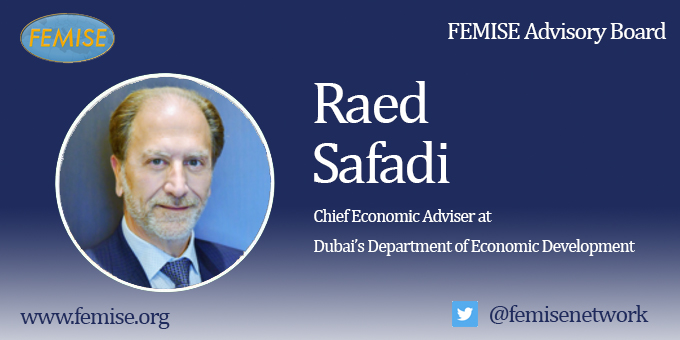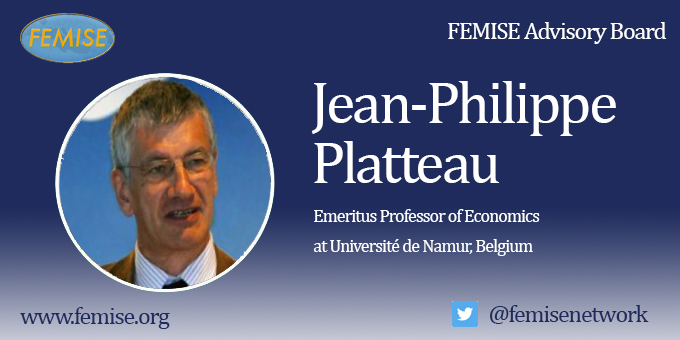
Since 1 July 2012 Prof. Dr. Tobias Schumacher is the holder of the Chair in European Neighbourhood Policy. He is also an Associate Senior Research Fellow at the Centre for International Studies (CEI-IUL) at the University Institute of Lisbon.
He previously held positions at the University Institute of Lisbon, the Euro-Mediterranean Study Commission (EuroMeSCo), the Robert Schuman Centre for Advanced Studies (RSCAS) at the European University Institute (EUI) in Florence, the German Council on Foreign Relations (DGAP) in Berlin, and the University of Mainz.
Prof. Dr. Schumacher earned his doctorate in Political Science at the University of Mainz in 2002 and was awarded several fellowships and grants, among others, by Harvard University, the University of Cambridge, the European Commission, the European University Institute, the Fondazione Monte Paschi dei Siena, and the Foundation of the German Economy. His article (co-authored with Raffaella Del Sarto) entitled ‘From Brussels with love: leverage, benchmarking, and the Action Plans with Jordan and Tunisia’, published in Democratization, Vol. 18 (4), 2011, pp. 932-955, won the scientific award for academic excellence of the University Institute of Lisbon.
He taught in many univeristies worldwide such as the European University Institute, the Dublin European Institute, Johns Hopkins University, Munich University, Université Hassan II Casablanca, Mainz University, and Ilia State University in Tbilisi. He is the author of some 90 books, book chapters, articles and policy papers on the European Neighbourhood Policy, Euro-Mediterranean relations, Middle East and North Africa politics, and Foreign Policy Analysis. He is the profiles editor of Mediterranean Politics, a member of the editorial board of Insight Turkey, and a regular contributor to the international media.
Prof. Dr. Schumacher, has co-edited and co-authored The Routledge Handbook on the European Neighbourhood Policy (2018)




